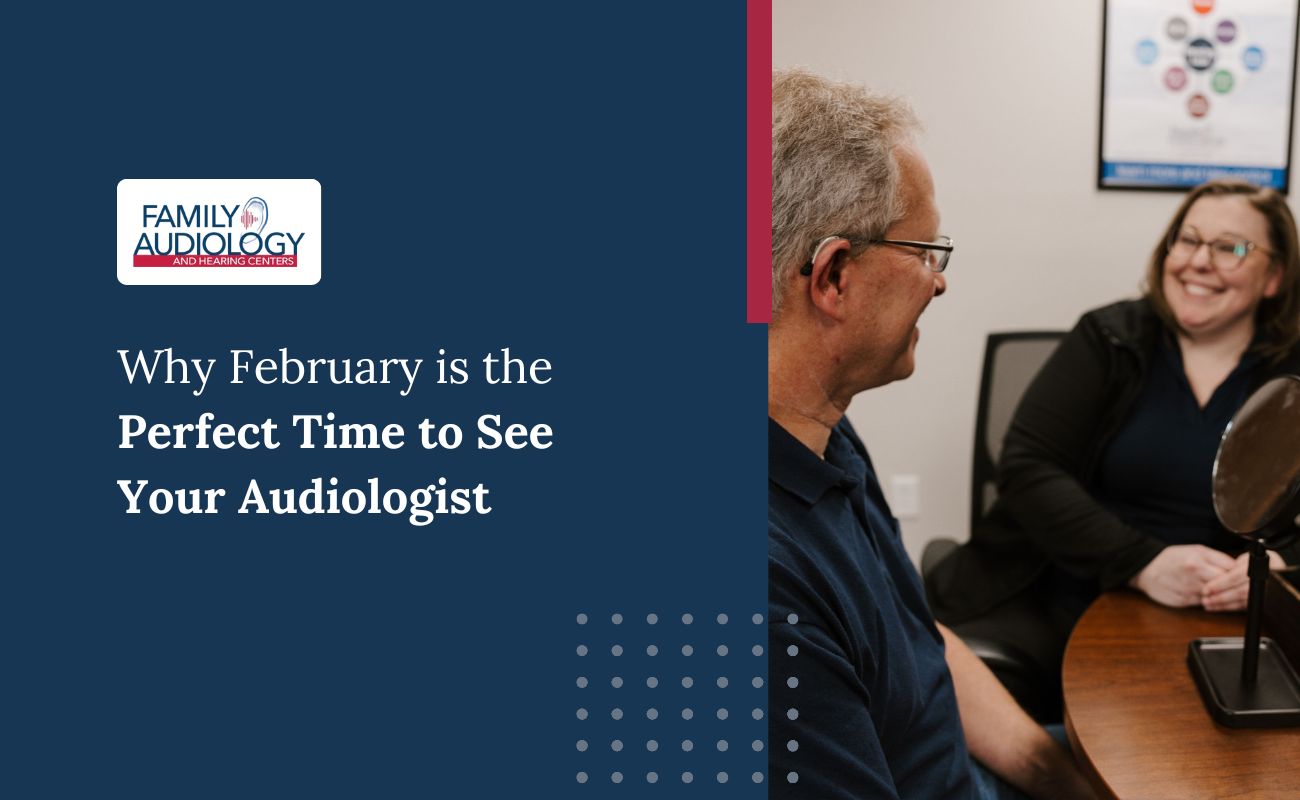Ask an Audiologist: Does It Matter When I Get My Hearing Tested?



Our hearing health is something that can change over time, often so gradually that we don't notice. Regular hearing tests are instrumental in identifying any decline in our hearing capacity. By getting our hearing tested at key points in our lives, or when we notice potential issues, we can address problems before they progress.
Just as with any other health concern, early detection of hearing issues plays a significant role in the effectiveness of the interventions we can pursue. Hearing screenings and comprehensive tests are cornerstones of auditory health monitoring. These evaluations are not only for those who notice difficulty in hearing but are also vital as a preventative step. Some hearing issues, such as those caused by blockages or infections, can be resolved if caught early, while sensorineural hearing loss can be better managed with prompt attention. It's important for us to understand that hearing screenings are not one-time events but rather part of a continuous health maintenance routine.
Oftentimes, people inquire about the ideal frequency for hearing evaluations. As a general guideline, adults should consider having their baseline hearing checked by the time they reach 65, as suggested by the Mayo Clinic. Yet, it's wise for us to listen to our bodies and seek testing sooner if we're frequently exposed to loud noises or if hearing changes are noticed.
Understanding the impact of hearing loss and the value of early intervention is paramount for maintaining a healthy auditory system.
Early Detection of Hearing Loss
Routine hearing screenings are a fundamental component in the early detection of hearing loss. Identifying hearing impairments promptly can lead to beneficial outcomes, as we have more options for managing the condition effectively. For instance, the American Speech-Language-Hearing Association notes the importance of implementing routine screenings to increase the identification and treatment of hearing loss in adults.
Prevention of Further Hearing Damage
When we initiate timely assessments, we are not just diagnosing existing hearing issues, but also taking a proactive step in preventing further auditory damage. Frequent and high noise exposure is a common risk factor that can be mitigated with appropriate hearing protection strategies, following a professional hearing test suggestion.
Mental Health and Social Implications
The ramifications of untreated hearing loss extend beyond the auditory system, affecting our mental health and social interactions. For example, a hearing test can serve as a preventative measure against potential cognitive decline and social withdrawal. Hearing loss can be isolating, but with early detection and treatment, we can preserve our mental well-being and social engagement.
Understanding Hearing Tests
When we discuss hearing tests, we're focusing on the critical role they play in diagnosing and managing hearing health. Early detection through various evaluations can lead us to effective intervention strategies.
Types of Hearing Evaluations
There are several types of hearing evaluations designed to measure different aspects of hearing ability. These include:
- Pure-tone testing, which involves listening to tones at various pitches and volumes to identify the quietest sounds a person can hear.
- Speech testing, assessing how well a person can hear and understand speech at different volume levels.
- The Otoacoustic Emissions (OAEs) test, determining if certain parts of the ear are functioning properly.
What to Expect During a Hearing Test
A typical audiometric evaluation is a straightforward process. Here's what you can expect:
- Firstly, you'll be asked about your medical history and any hearing concerns.
- The audiologist will examine your ears using an otoscope to check for physical blockages or issues.
- You'll likely be tested in a sound-treated room wearing headphones or earplugs, with tones and words delivered to each ear individually.
Interpreting Your Results
After a hearing test, you'll receive an audiogram. This graph visually represents:
- The frequencies at which you can hear soft tones, plotted as hearing thresholds.
- Your ability to understand speech, shown as word recognition scores.
Understanding these results allows us to tailor hearing interventions precisely to your needs.
Best Practices for Scheduling Hearing Tests
When it comes to maintaining good hearing health, timely and regular testing is key. Setting a schedule can help detect any changes in hearing abilities early, which is critical for effective treatment.
Recommended Frequencies for Different Age Groups
- Infants and Toddlers: Newborns should undergo hearing screening before leaving the hospital or within the first month of life. If they fail the initial screening, a full hearing test should be conducted before they are three months old.
- Children: After the initial test, children should have additional hearing screenings at least once during preschool ages (3-5) and periodically throughout school years.
- Adults: Generally, adults should be tested every decade through age 50 and every three years thereafter. However, if at any point you notice symptoms or changes in hearing, you should be tested sooner.
- Older Adults: People over 60 should have an annual test, as the prevalence of hearing loss increases with age.
Situations That Warrant Immediate Testing
If you experience any of the following scenarios, seek a hearing test as soon as possible:
- Sudden or rapid hearing loss in one or both ears, which may signify a serious issue requiring urgent care.
- Persistent tinnitus or ringing in the ears, which could indicate underlying hearing loss.
- Difficulty understanding speech, especially in noisy environments; this may be an early sign of hearing loss.
- Exposure to loud noises, either in a sudden event or over a long period; after such exposure, a hearing test can determine if there has been any damage.
How to Prepare for a Hearing Test
Preparing for a hearing test is crucial for accurate results. We ensure that we are ready for the evaluation by following specific instructions and bringing essential items to our appointment.
Before the test, we need to take certain steps for the most effective outcomes:
- Avoid loud noises: We should avoid exposure to loud sounds for at least 24 hours prior to the test to prevent temporary threshold shift, which could affect the results.
- Check for wax buildup: Ears should be clear of wax. If we are prone to wax accumulation, visiting a clinic for wax removal may be advisable.
- Record hearing health history: We ought to document any notable past hearing issues or exposures to loud environments to discuss with the audiologist.
When it comes time for our appointment, bringing the right items is important:
- List of medications: Some medications can affect hearing. Let's have a list of any prescribed or over-the-counter drugs we take.
- Previous hearing test results: If we have had hearing tests before, bringing past results can help the audiologist detect changes in our hearing over time.
- Health Insurance Card: If applicable, we need our card to process insurance claims.
- A Relative or Friend: Someone to accompany us can be beneficial. They may help remember information or notice things we might miss about our hearing.
Schedule Your Hearing Test with Family Hearing Centers
Regular check-ups with an audiologist or hearing specialist to ensure that any changes in hearing are promptly addressed, contributing to better long-term auditory health and well-being. Hearing care professionals play a crucial role in promoting and maintaining overall hearing health. Our audiologists have specialized knowledge and expertise that enable them to assess, diagnose, and provide personalized solutions for individuals with hearing issues.
Planning an annual hearing test with Family Hearing Centers is essential as it allows for early detection of potential hearing problems, enabling timely intervention to prevent further deterioration, improve communication, and enhance overall quality of life. Contact us today!
Discover the Latest Articles
Stay informed with our informative articles.

Why February is the Perfect Time to See Your Audiologist
.jpg)
What Your Audiologist Checks During a Comprehensive Hearing Evaluation

How AI Technology Is Transforming Hearing Aid Performance
Contact your local Hearing Aid Specialists
At Family Audiology and Hearing Centers, we strive to be there for all your family’s hearing needs. Because of this, we have 17 convenient locations in Ohio and Wisconsin for you to visit. See which location is best for you and schedule an appointment today.


